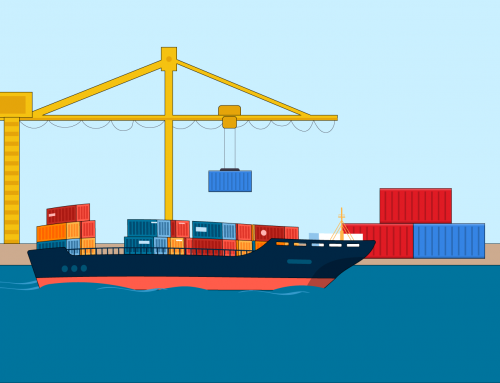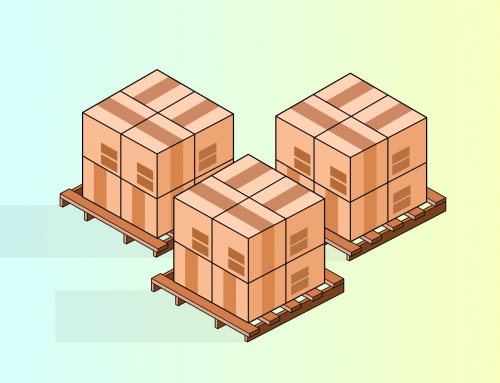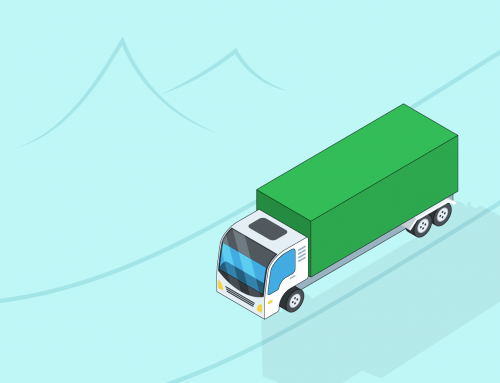Overview of difference between Incoterms 2000 and 2010
Listen here to the audio blog equivalent.
Ask An Expert:
Discussion with renowned global trade expert Murdo Beaton and Abdul Mann, creator of the cloud-based export solution EdgeCTP.
Geoff:
OK, today can you explain to me, what is the difference between Incoterms 2000 and Incoterms 2010?
Murdo:
Incoterms 2010 fell into the ten-year cycle, by which the International Chamber of Commerce determined a review of Incoterms 2000. In the revision of Incoterms 2000 producing Incoterms 2010, and in view of the changing face of international trade, the International Chamber of Commerce determined to reduce the previous thirteen terms to eleven in number. They did this by removing four terms from the original Incoterms 2000 and replacing them with two new terms for Incoterms 2010. So we had eleven of the original Incoterms 2000 plus another two and four of the original Incoterms 2000 were actually dropped. That was one of the main differences between them.
There were also of course others. Incoterms 2010 made the provision for a more acceptable level of understanding towards electronic documents. This with the exclusion of the electronic Bill of Lading, but now the use of electronic documents in an international transaction is something that Incoterms actually considers as being a viable option if appropriate. Here again, it is up to both parties to actually consider whether the use of electronic documents in their transaction is something that they would both be willing to consider.
Furthermore, there has been a change also with regards to the issue of insurance. Where in actual fact an Incoterm calls for one party or another to undertake insurance, and primarily, in this case, it’s the exporter’s position where the term dictates it, in Incoterms 2010 for the first time mention has been made of insurance clauses that could apply to the insurance cover. Whereas in Incoterms 2000 there was virtually no mention of any particular insurance clause that should be considered. So that is a fundamental difference in the revision of 2010.
There is also another change in as much that 2010 introduces more clarity towards the issue of terminal handling. Terminal handling is always more of a contentious point in international trade because sometimes the resultant factor is that the exporter pays for the handling charge and the importer pays for the same handling charge, and confusion was arising and in some cases certain animosities were being created between the exporter, the importer and the logistic entity, be that a freight forwarder or indeed a carrier. So Incoterms 2010 has actually moved towards bringing more clarity to that particular issue.
Incoterms also are now able to be used in the domestic market as well as in the international market, and this particular development was probably targeted, yes at the European Union market, but also at the American Market, where the Americans were reluctant to use Incoterms in their internal market because of certain issues relating to some of the clauses. Now Incoterms 2010 have actually made it easier for the domestic market to adopt Incoterms into their transactions, and this is a very good development.
Furthermore a development in what we call “string contracts”. These are contracts that are probably more related to dry commodities, where in actual fact the goods are sold while still in transit. Incoterms were never really attractive to the trader who was actually buying goods while they were yet in transit, and that can be understood if we introduce one of the Incoterms called CIF. Now Incoterm CIF means Cost Insurance and Freight, that’s what it stands for, and it means that the trader in the middle of the string transaction would have had to ship the goods. Now of course if they were buying the goods while they were already on board the ship, how could they have shipped them? They were already on board. So, this made Incoterms less attractive to this type of international activity. Now of course 2010 has introduced the issue that the trader in the middle of the string transaction can procure goods already shipped.
Abdul:
That’s super interesting Murdo. In that example you’ve got, say I decide I want to sell my widget and I put it on a boat to Norway, and it’s bound to that location, and someone decides “I want to buy them and I want them to go to Tahiti.” The Tahitian person decides he wants to buy them and so my ship takes a detour now and goes off to Tahiti instead to deliver the goods. Is that what you’re saying?
Murdo:
Yes, well let’s take it that your buyer in Tahiti buys the goods while they’re still on the ship. Now, that buyer will want to sell them onto somebody else. Now that somebody else that wants to buy them will probably be looking for them to be delivered CIF Tahiti port.
Abdul:
Ah, right. So I’ve sold them to a guy in Norway and the Norwegian fellow has turned around and sold them, whilst in transit to a guy in Tahiti. So now I’m delivering to Tahiti but the guy who originally bought them is in Norway.
Murdo:
It’s this change in the Incoterm that has now made it possible for the trader in the middle of the chain to be totally comfortable, because previously they were saying “I’m offering these goods to this company in Norway on a CIF Stavanger basis and the CIF Stavanger basis which will be my contract with the Norwegian buyer say I have shipped these goods on board the vessel. Well, I didn’t ship them on board the vessel. The guy from whom I bought them shipped them on board the vessel. So how can I use this Incoterm? I am actually misleading my Norwegian buyer into thinking I loaded them on board the ship, or instructed them that they should be loaded. I didn’t. So this new term now says, that’s alright because using the new Incoterms 2010 I can now be allowed to procure goods that have already been shipped and I can also procure a contract of transport that has already been in existence. So this makes this type of international activity, and Incoterm more attractive to those who are engaged in these types of international activities.
Another change that has taken place is in Incoterms 2000, exporters were deemed, as far as the packing of the goods were concerned, only to be required to provide packaging. Now, Incoterms 2010 makes no issue about this. It clearly says the exporter must pack the goods, so there is clarity about it. It’s not now a question of providing for packaging, it is now saying “you will pack them before you move them forwards in the logistic chain.”
There’s also in Incoterms 2010, more emphasis on the issue of cargo security. Now, yes Incoterms 2000 may have made reference to that too, but Incoterms 2010 brings in more to the front that cargo security is hugely important. This relates to both the exporter and the importer because global supply chain compliance is now becoming rather stricter than it may have been and it is now subject to more robust disciplines and it’s this issue of cargo security that is hugely important to certain countries, for that country’s own security. So, yes indeed, cargo security is highlighted within the framework of Incoterms 2010. Another change that took place and marks the difference between Incoterms 2000 and Incoterms 2010 is the removal of that phrase ships rail. This is particularly relating to Incoterms that relate to marine transportation.
Ships rail is no longer something that is recognised and no doubt this may cause some headaches to certain lawyers, but nevertheless it is to be considered a very sensible development, because considering delivery was meant to take place under the old term when the goods were hanging over the ship’s rail, I really conjured up all sorts of crazy visions.
Abdul:
So when you talk about ships rail, just to be clear here, we’re talking about the railing on the side of the ship?
Murdo:
You can call it the edge of the ship if you want, yes. (Laughs)
Abdul:
Yeah, the railings at the edge of the ship to stop people falling overboard etc, etc. So as soon as those goods had crossed that rail they belonged to whomever, right?
Murdo:
The ship’s rail is that which you lean over when cruising to take photographs. (Laughs) That’s what it is. So that has been replaced by the term Shipped on Board, and that makes it far more definitive. Any term that makes mention of the delivery point being found at the ship’s rail, that is now removed and it’s to be found when the goods are Shipped on Board. Shipped on Board essentially means that they have been safely loaded on board the vessel. So there are therefore as you can see, quite a few differences between Incoterms 2000 and Incoterms 2010, and all to take a measure of the changing face of international trade, and the expectation of companies engaged in it.
Abdul:
Are they ten-year cycles then Murdo?
Murdo:
They are ten years, yes.
Abdul:
So every ten years they revise the previous Incoterm and come up with a new one. So we would probably be expecting another one in 2020 then.
Murdo:
Yes, that would be the expectation.
Geoff:
I hope you enjoyed this. If you’d like more information on international trade, go to www.edgectp.com






